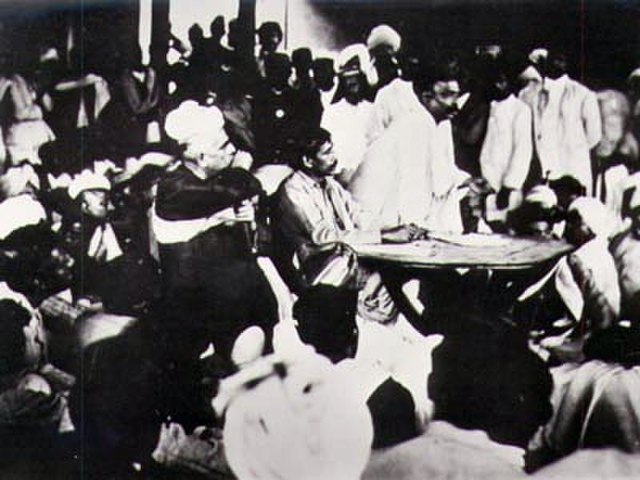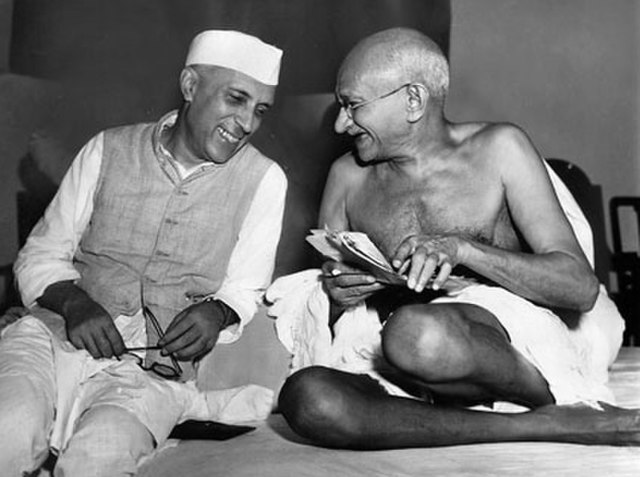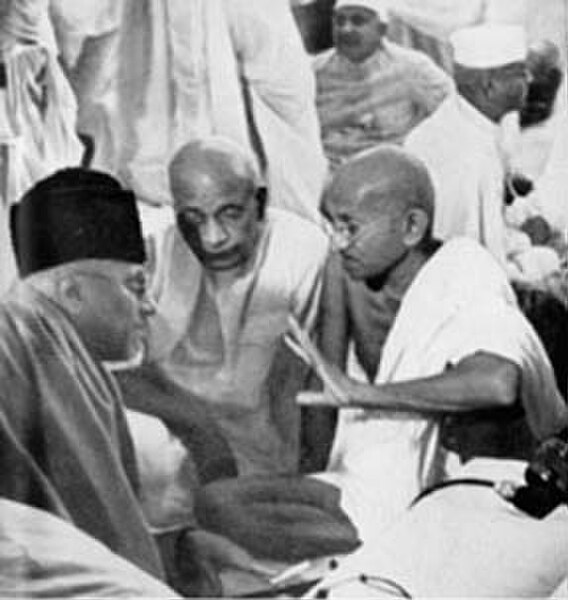The Congress Socialist Party (CSP) was a socialist caucus within the Indian National Congress. It was founded in 1934 by Congress members who rejected what they saw as the anti-rational mysticism of Gandhi as well as the sectarian attitude of the Communist Party of India towards the Congress. Influenced by Fabianism as well as Marxism-Leninism, the CSP included advocates of armed struggle or sabotage (such as Yusuf Meherally, Jai Prakash Narayan, and Basawon Singh as well as those who insisted upon Ahimsa or Nonviolent resistance. The CSP advocated decentralized socialism in which co-operatives, trade unions, independent farmers, and local authorities would hold a substantial share of the economic power.
JP, Lohia & Benipuri at Kisan Sabha CSP Patna Rally, August 1936
Congress Socialist Party possessed countrymade pipe bomb that recovered in 1943.
The Indian National Congress (INC), colloquially the Congress Party or simply the Congress, is a political party in India with deep roots in most regions of India. Founded on 28 December 1885, it was the first modern nationalist movement to emerge in the British Empire in Asia and Africa. From the late 19th century, and especially after 1920, under the leadership of Mahatma Gandhi, the Congress became the principal leader of the Indian independence movement. The Congress led India to independence from the United Kingdom, and significantly influenced other anti-colonial nationalist movements in the British Empire.
First session of Indian National Congress, Bombay, 28–31 December 1885
Bal Gangadhar Tilak speaking in 1907 as the Party split into moderates and extremists. Seated at the table is Aurobindo Ghosh and to his right (in the chair) is G. S. Khaparde, both allies of Tilak.
Mahatma Gandhi and Jawaharlal Nehru during a meeting of the All India Congress, in 1946
Azad, Patel and Gandhi at an AICC meeting in Bombay, 1940






